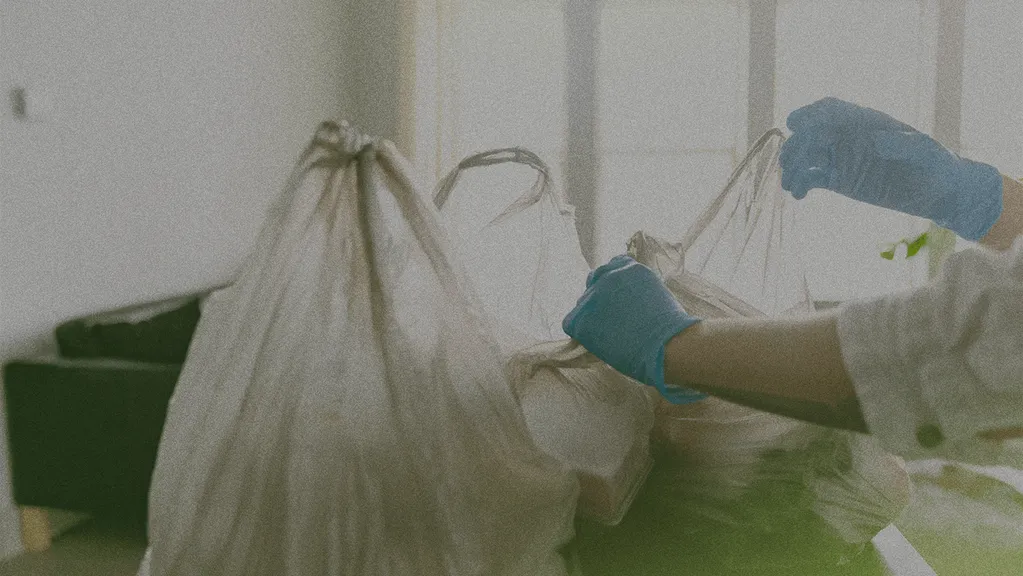American households generate a significant amount of waste, averaging 5.9 pounds per day. Over the course of one year, this adds up to more than one ton of garbage, creating a substantial environmental impact. Reducing household waste is an important goal, and we can achieve it by focusing on how we reuse, reduce, and recycle. Simple, practical steps can help us live a greener, more environmentally friendly lifestyle.
The idea of minimizing household waste can feel overwhelming, but getting started is as simple as taking one small step each day. Use these practical tips to help you reduce waste and make a positive impact on the environment.
7 Tips to Reduce Waste
1. Recycle Properly
Of the 5.9 pounds of daily household waste, only 1.5 pounds are recycled. Americans leave a lot of recyclables in the trash: according to the EPA, 70% of our garbage is recyclable, but only 30% actually gets recycled. We can reduce that gap in our own homes by properly cleaning and sorting recyclables from trash. While it may take slightly longer than trashing it, giving your household items a second life is easy and preferable to plastic slowly decaying in a landfill.
Learn the recycling standards in your city or county to know what can and can’t be recycled. Many cities provide disposal for mixed recycling, meaning you don’t even have to sort between paper, glass, and metal recyclables. Just be sure you clear all the trash out of your recyclables before putting them in the bin. One piece of garbage can contaminate an entire recycling bin.
2. Reduce Food Waste
Approximately 1.3 billion tons of food is trashed every year, amounting to one-third of the world’s total food supply. Reducing your food waste is an easy way to be more environmentally conscious and waste less. The easiest way to reduce food waste is to understand how your household consumes food.
If you consistently have leftovers rotting in your fridge, it’s a sign that you can buy less food at the grocery store. You can also choose to shop more often, only buying perishable foods the day you’re using them. Store leftovers properly and consider freezing excess amounts of food for future consumption. Making a weekly or monthly meal plan is a great way to get a handle on the food you’re buying and ensure you’re not letting food go to waste.
For the food scraps odds and ends, composting is a great way to reduce household waste and give back to the planet in your own backyard. Compost makes great fertilizer for produce and flower gardens. If you don’t have the ability to use compost, your city may offer composting pick up or a local farm may be interested in using it. Investing in a good set of food storage containers also goes a long way. Mason jars, reusable produce bags, and airtight food storage containers help prolong the shelf life of your food and keep you from throwing out a meal you were looking forward to.
3. Eliminate Singe-Use Items
Paper plates and plastic silverware are great for saving time during the post-meal clean-up, but this convenience takes a heavy toll on the earth. Single-use items make up a large part of household waste, including:
Plastic water bottles
Plastic bags
Paper towels
Straws
Plastic cutlery
Disposable plates
Investing in reusable water bottles, reusable produce bags, cloth shopping bags, and cloth towels makes a small difference every day that adds up to a big difference at the end of each year. Your wallet and the environment will thank you. As a bonus, keeping a reusable water bottle on hand helps you stay more hydrated during the day.
4. Buy Items Without Packaging
How you spend your money has an impact on the products available for sale and how they’re packaged. If every consumer made the conscious choice to only purchase products or goods with minimal to no packaging, the industry would soon shift to less packaging and less waste overall.
Each time you make the choice to buy the product with little to no packaging, you’re sending a message to retailers that consumers don’t support wasteful production. Every little bit adds up, so each time you make the choice to buy items without excess packaging, it has an impact on reducing your household waste.
5. Repair, Don't Discard
With the ease and availability of every product in the world at our fingertips, it’s easy to just cast something aside because it breaks. But when was the last time you tried to fix something, rather than trash it? Buying high-quality items and taking care of them is better for the planet and your wallet long term. Buying cheap, disposable items not only increases the amount of trash you produce, it also takes a toll on your budget. The next time a toy breaks or the button pops off a pair of pants, take a few minutes to see if it’s fixable rather than just tossing it in the bin and ordering a new one.
6. Unsubscribe from Junk Mail
Tired of opening your mailbox only to find it full of ads, spam, and junk mail? Us too. Over 100 million pieces of junk mail are sent to US homes every year, and that adds up to a lot of trees wasted. Unsubscribing from junk mail can be more work upfront as you sort through the companies, but long term it saves more trees and reduces the waste cluttering up your mailbox and coffee table. A little investment is worth it to make the planet a better place for everyone!
7. Donate, Don't Trash
If you have clothes, books, toys, or household items cluttering up your space, consider donating them rather than bringing them to the curb. Gently used items in good shape can find new lives in second-hand and consignment stores, reducing the amount of trash wasting away in a landfill. You’re also helping your community by providing affordable, recycled household goods for those who can’t afford new products. This includes clothes, bedding, toys, shoes, and furniture. If you have electronic products like tablets and laptops, they can be donated to schools or educational organizations.
Get in the Habit of Recycling
You don’t have to do everything on this list at once! Pick one and start there; small incremental changes add up quickly over the course of a year. For help with waste management and recycling, Sourgum is your environmentally-friendly partner. We take care of everything to make recycling as easy and second nature to you as possible with a variety of recycling and waste management services. Our on-demand collection makes it easy to get rid of recyclables, large items, or excess garbage.
Learn more about our residential waste services, let us know what you’re getting rid of and when, and we’ll take care of the rest. Do you have a business that generates a lot of food waste? Sourgum can ensure that your food waste is diverted from the landfill and into a specialty disposal facility. Explore how our commercial waste services can help you and the planet.


